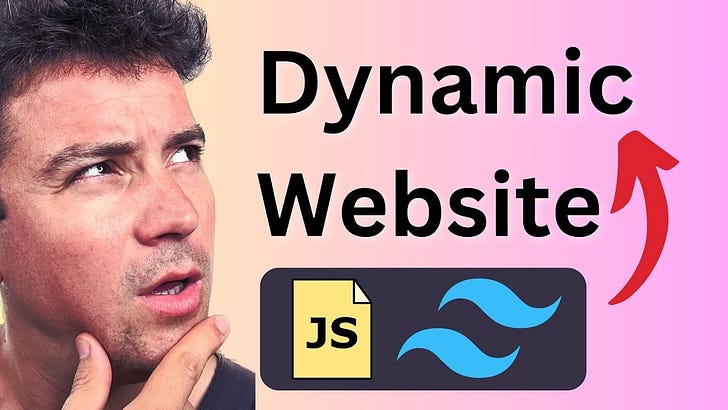In this project, we will build a message pop-up modal using JavaScript and Tailwind CSS. This project is part of my "Learn Web Development From the Beginning" series, where we progressively create real-world projects with HTML, CSS, JavaScript, and Tailwind.
🔥 Become a channel member and get full access to all my web development courses: https://www.youtube.com/playlist?list=UUMOx8iaEliW-CFrS0t9KHisTw
📚GET ULTIMATE COURSES BUNDLES: https://norbert-bm-s-school.teachable.com/
You’ll learn how to:
Create a hidden modal
Toggle modal visibility with JavaScript
Send and validate a message input
Close the modal when clicking outside or on a cancel button
Step 1: Set Up the Basic Project Structure
Create a new folder for your project.
Inside, create:
index.htmlstyle.css(optional if you want custom styles)script.js
Link TailwindCSS via CDN in your HTML file.
<!DOCTYPE html>
<html lang="en">
<head>
<meta charset="UTF-8">
<meta name="viewport" content="width=device-width, initial-scale=1.0">
<title>Message Modal</title>
<script src="https://cdn.tailwindcss.com"></script>
</head>
<body class="bg-gray-100">
<!-- Modal and button go here -->
<script src="script.js" defer></script>
</body>
</html>Step 2: Build the Modal Structure (HTML)
Create the modal structure inside the <body>. Initially, the modal should be hidden.
<!-- Message Button -->
<button id="message-button" class="bg-blue-600 text-white p-2 rounded hover:bg-blue-700">
Open Message Modal
</button>
<!-- Modal -->
<div id="modal" class="fixed inset-0 flex items-center justify-center bg-gray-900 bg-opacity-50 hidden">
<div class="bg-white rounded-lg p-6 w-96 dark:bg-gray-800">
<h2 class="text-xl font-bold text-gray-800 dark:text-white">Send a Message</h2>
<textarea id="modal-input" class="mt-4 w-full h-32 border rounded p-2" placeholder="Type your message here..."></textarea>
<div class="flex justify-center gap-4 mt-4">
<button id="send-button" class="bg-blue-600 text-white px-4 py-2 rounded hover:bg-blue-700">Send</button>
<button id="close-button" class="bg-gray-400 text-white px-4 py-2 rounded hover:bg-gray-500">Cancel</button>
</div>
</div>
</div>
Step 3: Handle the Modal with JavaScript
In script.js, write the logic to open, close, and send messages.
// Select Elements
const modal = document.getElementById('modal');
const messageButton = document.getElementById('message-button');
const sendButton = document.getElementById('send-button');
const closeButton = document.getElementById('close-button');
const messageInput = document.getElementById('modal-input');
// Toggle Modal Visibility
function toggleModal() {
modal.classList.toggle('hidden');
}
// Open Modal
messageButton.addEventListener('click', toggleModal);
// Close Modal on Cancel
closeButton.addEventListener('click', toggleModal);
// Close Modal When Clicking Outside
modal.addEventListener('click', function (event) {
if (event.target === modal) {
toggleModal();
}
});
// Send Message
sendButton.addEventListener('click', function () {
if (messageInput.value.trim() === '') {
alert('Please enter a message.');
return;
}
alert(`Message sent: ${messageInput.value}`);
messageInput.value = ''; // Clear input
toggleModal(); // Close modal
});
Step 4: (Optional) Enable Dark Mode Toggle
Add a dark mode toggle button if you want to enable Tailwind’s dark mode classes dynamically.
Final Result
Click the "Open Message Modal" button ➔ Modal opens.
Type a message and click Send ➔ Shows an alert and closes the modal.
Click Cancel or click outside the modal ➔ Closes the modal.
Congratulations! 🎉 You now have a fully functioning, stylish message modal!
Complete Source Code: https://github.com/NorbertBM/learn-web-development-for-beginners-.git









